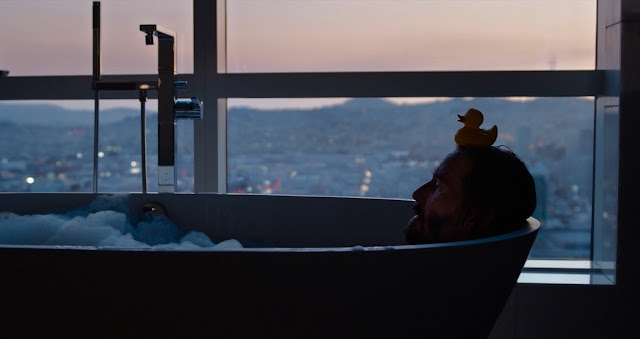"Limits are the domain of the limited."

Warner Bros. Pictures
Franchise stars Keanu Reeves and Carrie-Anne Moss, both return as Neo and Trinity surrounded by a largely new cast who either play brand new versions or echoes of previous characters. There are some very metatextual references about our current culture of repurposing nostalgia through reboots and remakes of past stories. Resurrections seems like a compromise of continuing the original films in a new direction as an antidote to blockbuster rehashes while still remaking many familiar elements with some mixed results.
To begin, we follow the charismatic Jessica Henwick's blue-haired gunslinger, Bugs, in search of the Chosen One and her path to resetting the Matrix from the real world. A hulky Yahya Abdul-Mateen II and smarmy Jonathan Groff co-star as reprogrammed versions of Morpheus and Agent Smith in the revisioned Matrix. In an interesting piece of casting, Neil Patrick Harris plays a key role as Neo's meddling therapist.
Scripted by Wachowski alongside European authors David Mitchell and Aleksandar Hemon, Resurrections firmly grounds itself in its central romance. Reeves and Moss' natural chemistry propels much of the film's momentum as the film gives us answers to our general dissatisfaction with life. Neo wonders if his familiar but haunted memories and undefined malaise are a result of hallucinatory psychosis.
Novelties aside, The Matrix Resurrections disappoints in its action choreography and its no longer inventive approach to storytelling. While the 1999 classic was a sort of elegy to the twentieth century, this fourth entry feels firmly planted in the middle of our current culture as a piece of contemporary commentary on our collective relationship to technology. It also has surprisingly more than a few similarities to another Warner Bros. legacy sequel released this year in Space Jam: A New Legacy as a nakedly self-identified piece of meta franchise exploitation.
More | YVArcade / Indiewire / ScreenCrush / Vox







0 reactions:
Post a Comment